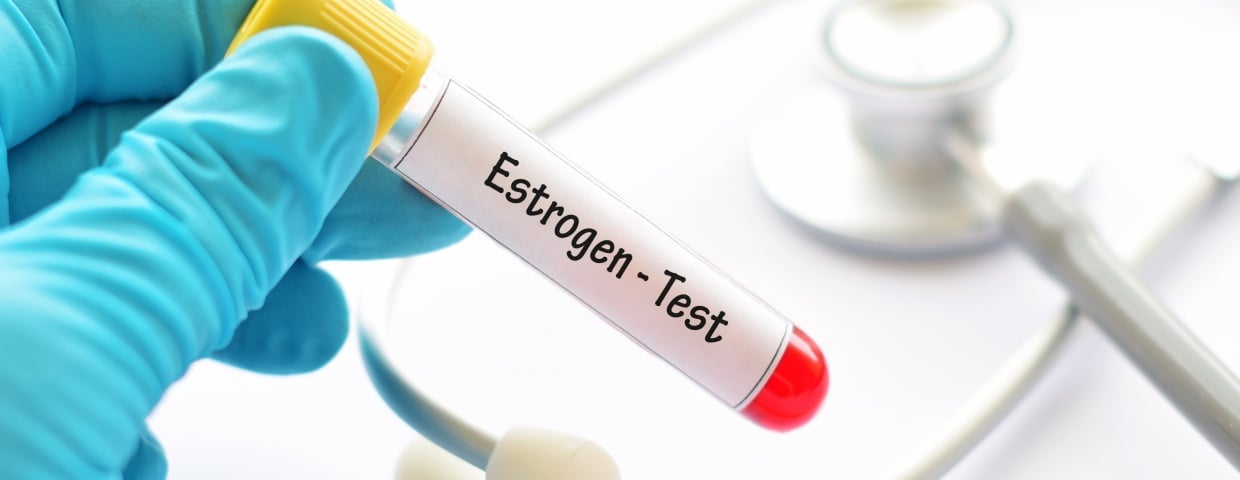Estrogen is the primary female sex hormone and it plays a major role in both reproduction and in the development and maintenance of female sex characteristics. Here we'll cover some of the symptoms and risks associated with an estrogen deficiency and the 6 most common triggers.
Most Common Symptoms of Estrogen Deficiency
Having low estrogen can affect numerous parts of your body, and it can have symptoms similar to those typically associated with menopause, such as night sweats and hot flashes. It can also impact your mood, your menstrual cycle, and more. Some common estrogen deficiency symptoms include:
- Brain fog
- Fatigue
- Anxiety
- Insomnia
- Hot flashes
- Night sweats
- Weight gain
- Loss of libido
- Menstrual irregularity
Estrogen deficiency is not only uncomfortable for many women, it can also cause long-term health issues. Estrogen deficiency increases your risk for:
- Osteoporosis
- Depression
- Infertility
- Cardiovascular Disease
- Heart Disease
Top 6 Estrogen Deficiency Triggers & Treatments
Here are the top six causes of low estrogen and what can be done to treat estrogen deficiency in each case.
1: Menopause
Menopause causes the ovaries to release fewer hormones, and it’s the leading cause of estrogen deficiency. Fortunately, most of the side-effects associated with menopause can be negated with estrogen replacement therapy.
2: Premenopausal Hormone Changes
During pre-menopause, the ovaries start to age, and for some women a deficiency of estrogen and/or progesterone can develop. For these women, transdermal estradiol is recommended for the first two weeks of their cycle, followed by natural progesterone for the second half of their cycle.
3: Birth Control
The pill stops ovulation and completely shuts down estradiol, which can lead to an estrogen deficiency. If a blood test shows low estradiol levels, transdermal estradiol and progesterone can be given in the same schedule recommended for premenopausal women.
4: Childbirth
In most cases, postpartum side-effects are caused because estrogen levels are too high in relation to progesterone. However, estrogen levels should be measured prior to progesterone replacement therapy because there are certain cases where an estrogen deficiency is to blame.
5: Extreme Exercise or Disordered Eating
Over-exercising, anorexia nervosa, and bulimia can all cause a deficiency of estrogen and/or progesterone, and when this occurs, a woman’s sex drive, fertility, and feminine characteristics may disappear. Replacing deficient female hormones can reverse these effects.
6: PCOS or Turner Syndrome
A deficiency of estrogen is particularly common in polycystic ovarian syndrome (PCOS) sufferers who have low body fat. Turner syndrome is a genetic disorder and most sufferer’s also experience ovarian failure, and require long-term estrogen therapy.
Ready to get started with hormone replacement therapy? We can help! Get in touch today.
N. Delgado, Ph.D., CHT
Read next in Women’s Health

How Menopause Hormones Can Influence Weight Gain and Ways to Manage It
By Dr. Robb Bird

Hormone & Peptide Therapy for Menopause Symptoms Beyond Estrogen | TransformYou
By Dr. Robb Bird

Testosterone Therapy for Women: Addressing Myths and Facts
By Dr. Robb Bird
Medically reviewed by Dr. Robb Bird, NMD FAARM
Medical Director, Transformyou
